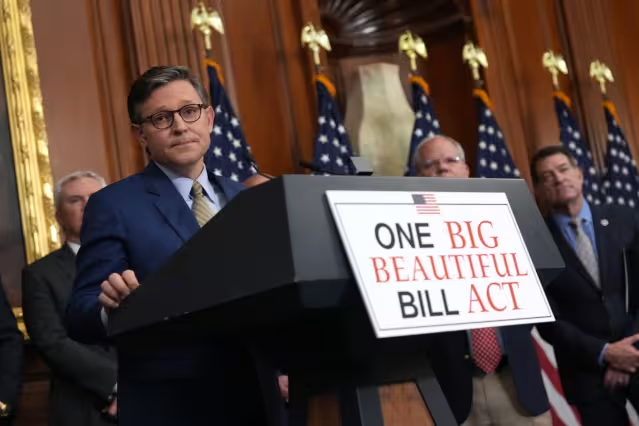May 24, 2025
Among the biggest beneficiaries of President Donald Trump’s sprawling federal tax legislation are wealthy individuals and families.
The bill, which squeaked through the U.S. House of Representatives on a vote of 215 to 214 on Thursday, would pay for some of these benefits with an estimated $700 billion cut to Medicaid, according to Congressional Budget Office estimates. That’s in addition to cuts to the Supplemental Nutrition Assistance Program, cuts and changes to energy and clean vehicle tax credits, higher taxes on college and university endowments and private foundations, among other cuts.
The House’s tax-and-spending bill has to get through the Senate before it becomes law, where it is expected to hit resistance from Republicans wary of the projected $3.8 trillion the legislation would add to the federal budget deficit.
But the current legislation would benefit the rich in several ways. Primarily, it does so by permanently extending the 2017 tax cuts passed early in Trump’s first term.
Significant among these is an extension of a higher estate-tax exemption that would allow a wealthy couple to pass an estate valued at $30 million (indexed for inflation) to heirs without paying federal estate and gift taxes. If the exemption is allowed to expire, a wealthy couple could only pass on $14.28 million tax-free.
This permanent extension will cost $212 billion from fiscal years 2025 to 2023, according to the Bipartisan Policy Center, a Washington D.C. nonprofit organization.
The House bill would also permanently increase the generation-skipping transfer tax exemption to $15 million for individuals and $30 million for couples, allowing the rich to transfer wealth to future generations without being taxed, according to the law firm Buchanan Ingersoll & Rooney.
Raising the exemption allows the rich to “pass on greater wealth to their heirs without the burden of transfer taxation, thereby encouraging wealth accumulation, larger lifetime gifts and transfers within families,” the law firm wrote in a summary of the bill. The proposal would provide wealthy individuals and families with “more flexibility in estate planning and wealth management,” the firm said.
The legislation also maintains lower tax rates for the wealthiest. Those in the top tax bracket—individuals with taxable income of at least $639,275, or married couples with taxable income of at least $767,15—would be taxed at a rate of 37%, according to the bill.
If the 2017 tax cuts were allowed to expire, those with taxable income of at least $543,800, or married couples with taxable income of at least $611,750, would be taxed at 39.6%.
Overall, the extensions and adjustments made to individual tax rates will cost an estimated $2.2 trillion, the Bipartisan Policy Center said.
The bill would also permanently extend the 2017 tax act’s higher thresholds and exemption amounts for the alternative minimum tax, although it resets the inflation base year from 2017 to 2025. The AMT was enacted in 1969 to make sure the wealthy paid some income tax, since they can often use deductions and credits to cut their taxes.
The 2017 tax act reduced the number of individuals and families subject to the tax substantially—to 200,000 in 2018 from more than 5 million before, according to the Budget Policy Center.
Resetting the inflation base year subjects more income to the AMT, according to the Penn Wharton Budget Model, a nonpartisan research initiative at the University of Pennsylvania. But extending the AMT provisions could still cost the government about $1.4 trillion from fiscal year 2025 to 2034, according to the policy center’s analysis.
Single-family offices—which manage millions of dollars in wealth—also benefit from the House bill. If Congress passes the legislation, the bill includes the extension of a deduction on qualified business expenses for so-called pass-through entities, which are businesses that pass income straight to their owners. These businesses can include family offices, in addition to partnerships or S corporations set up by families.
The House bill would not only extend this deduction, it would boost it to 23% from 20%. It also eases rules that limit deductions for wealthy taxpayers, the Bipartisan Policy Center said. The cost of these benefits to pass-through businesses? $820 billion would be added to the budget deficit, according to the nonprofit.


No comments:
Post a Comment